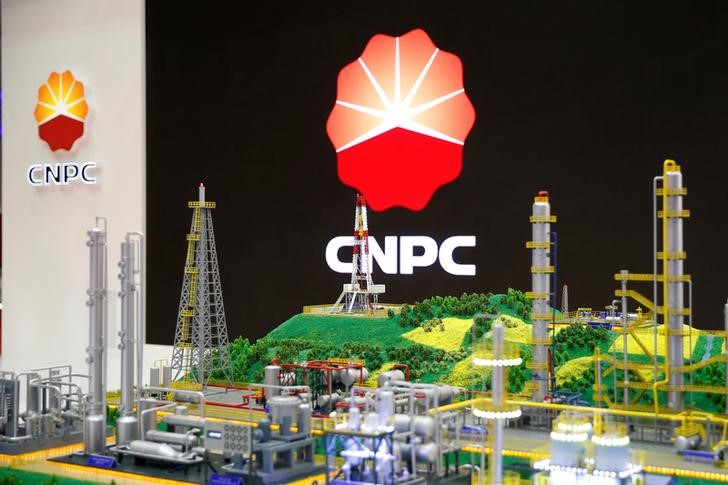By Barani Krishnan
Investing.com -- Crude prices drifted through Monday, running higher at times before turning back down to finish little changed as worries about impending U.S. rate hikes and a potential recession defied bets for runaway demand ahead of the Memorial Day holiday that flags off the peak driving period in the United States.
New York-traded West Texas Intermediate settled just a penny higher at $110.29 a barrel, after rising just over $1.60, or 1.5%, at one point. On the other end, WTI slipped just $1.10, or 1%.
London-traded Brent crude futures settled at $113.42/bbl, up 87 cents, or 0.77%.
Analysts pointed to China’s restrained demand for oil and fears of a U.S. economic slowdown for Monday’s subdued performance in crude.
“The reopening of Shanghai is a bullish development for oil but recession fears could be stopping prices from rallying much higher,” said Craig Erlam of online trading platform OANDA. “The cost-of-living crisis has arrived and higher oil prices will further exacerbate the pain on household budgets and eventually weigh on demand.”
China’s demand — or otherwise — for oil is so integral now that it could be the overriding factor for determining how crude prices perform for the rest of 2022, said International Energy Agency chief Faith Birol.
“We have only one hope that we don’t have big trouble in the oil markets in summer, which is hoping...that the Chinese demand remains very weak,” Birol told CNBC in an interview held on the sidelines of the World Economic Forum in Davos.
Multiple threats to the global economy topped the worries of the world's well-heeled at the annual Davos summit, with some flagging the risk of a worldwide recession. International Monetary Fund Managing Director Kristalina Georgieva said she did not expect a recession for major economies but also could not rule one out.
That weighed on the sentiment for oil despite relatively higher demand expected between Friday and next Monday’s Memorial Day holiday.
“The full effect of [the] Ukraine war has not been felt yet, the upward price pressure for industrial inputs is still to come,” Atlanta Fed President Raphael Bostic said at a live-streamed event. “We have a little more to go raising interest rates in the next several months. It may be the case that [the] Fed needs to go super hard on rate hikes, but that is not the baseline.”
The Fed, or Federal Reserve, has said it will raise interest rates non-stop and even slow the U.S. economy if necessary to bring inflation down from 40-year highs.
After contracting 3.5% in 2020 from disruptions forced by the coronavirus pandemic, the U.S. economy expanded by 5.7% in 2021, growing at its fastest pace since 1982. But inflation has grown just as fast as the economy, or maybe quicker, with some price gauges showing growth of as much as 8.5% on the year.
Since this year began, U.S. growth has been on a weaker trajectory, coming in at a negative 1.4% in the first quarter as the Russia-Ukraine crisis led to runaway inflation in food and energy prices.
If the economy does not return to positive territory in the second quarter, the United States will technically be in a recession going by the definition that it takes just two negative quarters in a row to make up a recession.
The Fed’s own tolerance for inflation is just 2% per year. After leaving rates at nearly zero for two years during the pandemic, the central bank raised them in March by a quarter-point and by another half point in May. The central bank says it will likely do another two half-point hikes in June and July, and assess their impact on the economy before proceeding. Some policymakers at the central bank have, however, suggested a three-quarter point hike to bring inflation down faster.
